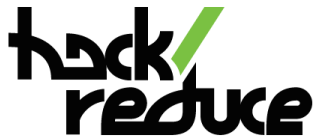With OpenSec 2017 less than a three weeks away, we are catching up with a few of this year’s panelists to hear the breadth of opinions surrounding the current state of open source cybersecurity, and where it is heading.
This week we spoke to Jason Meller, Co-founder and CEO at Kolide. At Kolide, Jason and his team are harnessing the power of Osquery to solve cyber security issues using accurate, timely, and queryable data. Prior to founding Kolide, Jason started as a member of GE’s elite computer incident response team, before moving to the Mandiant corporation and FireEye following Mandiant’s acquisition.
To hear more from Jason and other leaders in the open source community, sign up for OpenSec2017! on May 15th.
How are you related to Osquery and what do you think is so powerful about it?
My co-founder Mark Arpaia created Osquery while he was at Facebook. I started Kolide because I am a fan of Osquery. It just so happened that we were able to recruit him on the team. From my perspective, Osquery is just really exciting. It’s the first open source solution that really resonates with people who want to pull accurate and timely data from their endpoints. I think the fact that it is open source, and that there is so much community support behind it is exciting for many reasons. The first is that the existing proprietary software vendors have their own agents, which are these closed source, black box things. The future of host instrumentation is going to become a commodity. There are finite things you can pull from a host that are going to be interesting. Eventually, someone will produce and agent that will pull all of those things as performantly as possible. I think that solution will be an open source one. I think Osquery is in the best position to do that. As far as building a business, we believe that this thing is going to be a commodity, so the value is in what we do with that data, what insight and value are we driving from the data that Osquery collects. That’s what Kolide is all about – making a big bet on Osquery. We really want to grow that community. We think it is an awesome piece of technology, and that the future of the business isn’t necessarily the collection of the data, but what value can you get from it, which provides insight and lets you make competent security decision, DevOps decisions – or any decision where you need accurate and timely data from the host.
Why do you think Osquery is so popular on GitHub?
We kind of talk about the number of stars it has in relation to other security projects, but I think at the end of the day it’s because it’s so useful that it actually transcends the very narrow use case of cybersecurity. It basically allows you to ask any question you can conceive of the to endpoint and get an accurate answer as quickly as possible. The raw utility of that goes far beyond security. Getting good, accurate information as quickly as possible is an amazing capability to have to solve security problems, but it also solves a lot of other problems. One thing that I was really surprised about when we started Kolide was the number of people that cared about the security aspect, but they also use Kolide to get basic data from what’s going on on the Macs that their employees use: the configuration, is the firewall enabled, is it running these rules etc. These are very basic things that are hard to collect, because no one is really focusing on Mac and Linux from an agent perspective. Osquery treats those as first class citizens.
What will people learn by attending your talk at OpenSec?
I’m going to be talking a lot about Osquery itself. We’re not going to make this a commercial pitch for the product. We want people to get excited about Osquery. If you have never used Osquery before, and want to figure out what it is all about, how to install it, and ways that it can solve some problems out of the box you should attend the talk. We are going to walk you through every important facet of Osquery, and give you the materials you need to consider it seriously for your own use cases at your organization. If you are looking for a nice primer for dealing with Osquery this is the talk to you want to attend. You will get a lot of perspective. We know a lot of the sharp edges, and things to avoid that the documentation doesn’t necessarily state explicitly. It should be a fun talk for people who are psyched about Osquery, but also using open source solutions to deal with security issues surrounding endpoints at small or large organizations.
Want to hear more about OSQuery? Hear Jason and other Opensource security experts talk at OpenSec2017!




